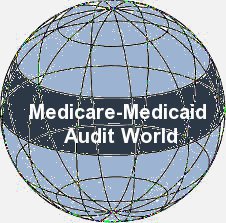 CMS has entered into contracts with numerous auditing companies to review provider billing for various purposes. As time goes by, it is more and more likely that billings submitted by almost every Medicare provider will be subject to review by one or more of these audit contractors. Set forth below is a brief description of the auditing functions of the various CMS auditors.
CMS has entered into contracts with numerous auditing companies to review provider billing for various purposes. As time goes by, it is more and more likely that billings submitted by almost every Medicare provider will be subject to review by one or more of these audit contractors. Set forth below is a brief description of the auditing functions of the various CMS auditors.
Medicare Administrative Contractors
 According to Chapter 3 of the Medicare Program Integrity Manual (PIM), in addition to their claims processing functions, Medicare Administrative Contractors (MACs) have the authority to review any claim prior to payment. MACs have the discretion to select target areas because of:
According to Chapter 3 of the Medicare Program Integrity Manual (PIM), in addition to their claims processing functions, Medicare Administrative Contractors (MACs) have the authority to review any claim prior to payment. MACs have the discretion to select target areas because of:
- High volume of services;
- High cost;
- Dramatic change in frequency of use and/or
- High risk problem-prone areas
What this means is that a MAC, unlike a RAC, does not have to obtain CMS’ approval of what procedures it will subject to prepayment review. Also, there is currently no limitation, other than the MACs discretion, as to how many Additional Document Requests (ADR) a MAC may make.
If the MAC feels that a certain procedure is being miscoded or that there is no medical necessity for a procedure, it will conduct a prepayment review of each claim submitted for extended periods of time. This means the provider will be subject to ongoing requests for records and suffer a substantial negative impact to its current cash flow.
Recovery Audit Contractors
A demonstration Recovery Audit program was authorized by § 306 of the Medicare Prescription Drug, Improvement and Modernization Act of 2003 and conducted from March 2005 to March 2008, in six states, to determine if Recovery Auditors could effectively be used to identify improper payments for claims paid under Medicare Part A and Part B. The Tax Relief and Health Care Act of 2006 made the program permanent and expanded it to cover the entire country. To implement the program, CMS divided the country into four regional areas.
The RACs are responsible for identifying improper payments for:
- Items or services that do not meet Medicare’s coverage and medical necessity criteria.
- Items that are incorrectly coded and
- Services where the supporting documentation submitted does not support the ordered service.
 Automated reviews conducted by the RACs typically focus on DME, physician and outpatient claims and do not require the production of additional records by the provider. Complex reviews, which do involve the production of additional medical records by the provider, involve coding issues, Diagnosis Related Group (DRG) validations and medical necessity reviews. CMS must approve the issue a RAC wants to review and has imposed limits on the number of medical records a RAC may request. Each RAC has established a website that lists, among other things, the claims that have been approved for audit.
Automated reviews conducted by the RACs typically focus on DME, physician and outpatient claims and do not require the production of additional records by the provider. Complex reviews, which do involve the production of additional medical records by the provider, involve coding issues, Diagnosis Related Group (DRG) validations and medical necessity reviews. CMS must approve the issue a RAC wants to review and has imposed limits on the number of medical records a RAC may request. Each RAC has established a website that lists, among other things, the claims that have been approved for audit.
CMS recently announced that a three year RAC pre-payment review demonstration project will begin on August 27, 2012. CMS conducted an Open Door Forum on August 9, 2012 to discuss the operation of this new program. The transcript of the Open Door Forum can be found here
 Medicare-Medicaid Audit World
Medicare-Medicaid Audit World






